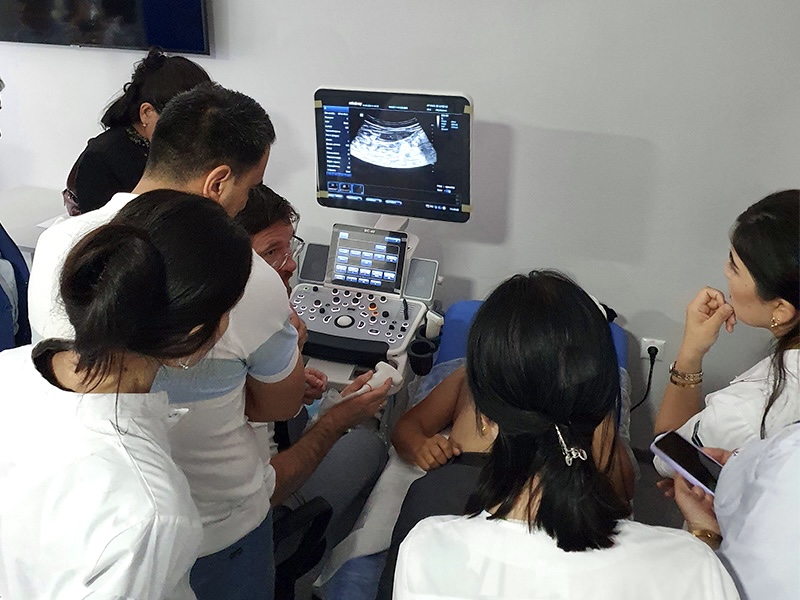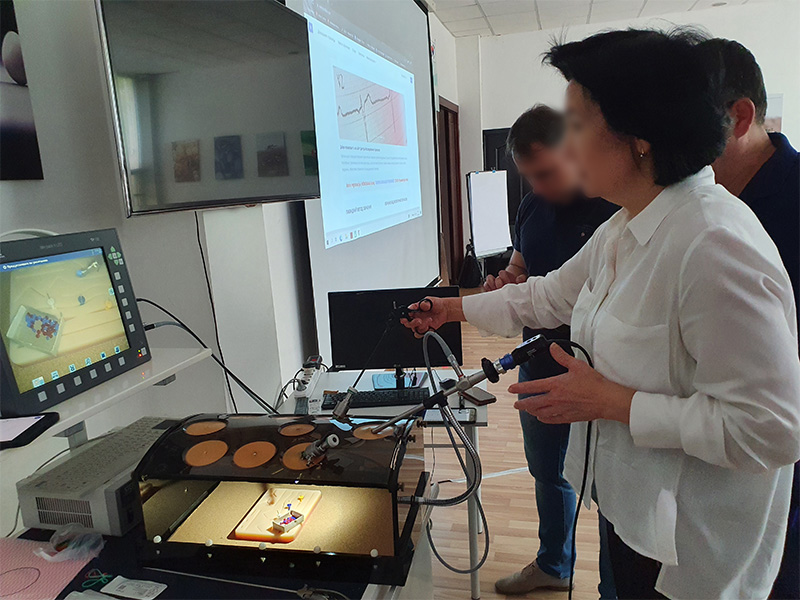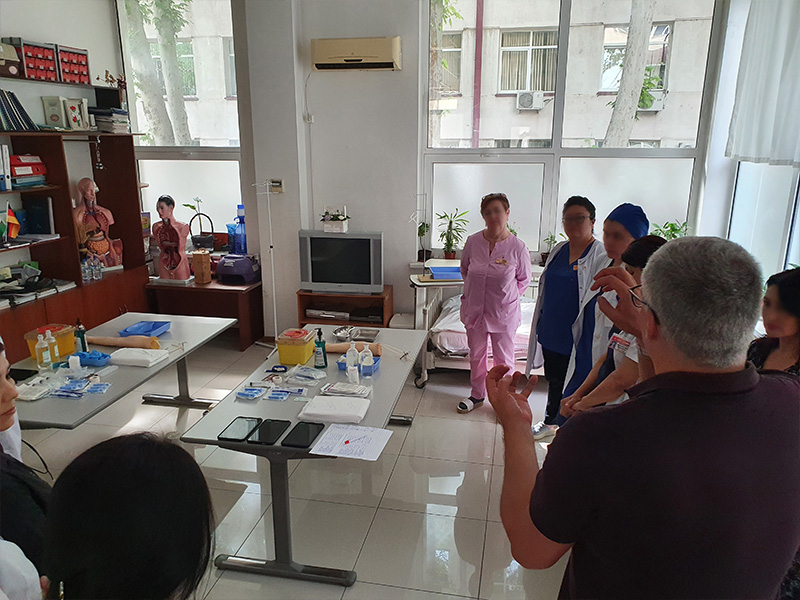Uzbekistan has been reforming its health system with the intention of improving service quality in primary, emergency and specialised medical care. To achieve this goal Uzbekistan has introduced advanced medical technology in the fields of endo-surgery, endo-gynaecology, neonatology, paediatric surgery, emergency medicine, and radiology. However, one challenge that remains is the training and pre/in-service medical education of these new technologies, not only for medical doctors but for all health professionals such as specialised nurses, laboratory and imaging assistants.
GIZ has commissioned management4health, to assess and revise medical curricula and SOPs/guidelines in the framework of the project, “Management of advanced medical technology in Uzbekistan” to improve practical skills training for medical students and personnel.”
The project focuses on medical curricula revision for post graduate training with a focus on a skills-based practical training and education approach. Standard operational procedures (SOPs) for endoscopic surgery, diagnostic imaging in emergency medicine, gynaecology, paediatric surgery & neonatology, surgery are to be updated in line with the trainings. Where necessary existing standards for documenting minimally invasive and diagnostic imaging procedures are to be revisited and revised.
The project has two main outputs that will contribute to improving the health status of the population, specifically in the pilot regions of Tashkent, Samarkand, the Fergana Valley, and the Republic of Karakalpakstan.
Output 1 aims at improving the (theoretical and practical) training of medical students (master’s degree) and doctors in the use of advanced medical technology in compliance with international quality standards, which will contribute to better quality of health services for the population.
Output 2 aims at updating standards for postgraduate training of medical personnel (doctors, nurses and imaging assistants) in the use of advanced medical technology to improve the quality of medical and technical services in public health facilities.
In the month of May 2022, m4h and its consortium partners (Crisis Research Center and evaplan) have offered 6 trainings to teachers, nurses, medical personnel in project institutions, in the areas of:
Mentorship: to gain deeper understanding of the role of leadership, gender equality, adherence to principles of adult learning, mentorship and workplace assessment in modern medical education from experiential learning in the interdisciplinary and multicultural team.
Neonatal head Ultrasound: to gain basic knowledge and getting familiar with the ultrasound techniques, learn how to safely perform and efficiently teach practical skills in the neonatal brain ultrasound.
Operating theatre nurses: to deepen knowledge and skills within nursing and surgical treatment for patients that are nursed within perioperative care and to facilitate an evidence-based health care.
Radiology technicians: to build knowledge and skills within Radiology technicians (x-ray laborants) clinical practice scope and to facilitate an evidence-based attitude.
Emergency Ultrasound – shock in trauma (eFAST) and non-trauma shock (RUSH): on the use of ultrasonography in emergency settings as well as how to safely perform and efficiently teach rapid sonography in shock and hypotensive patients (non-traumatic).
Laparoscopic skills: Improve teaching of basic laparoscopic skills, including the precision movement and hand-eye coordination, two-hand coordination, tissue dissection, suturing and intracorporeal knotting using the lap-box trainer.
These modules are of great importance because they ensure skills training as part of the medical curricula, thereby investing into building a sustainable education system that can be passed onto future generations.





